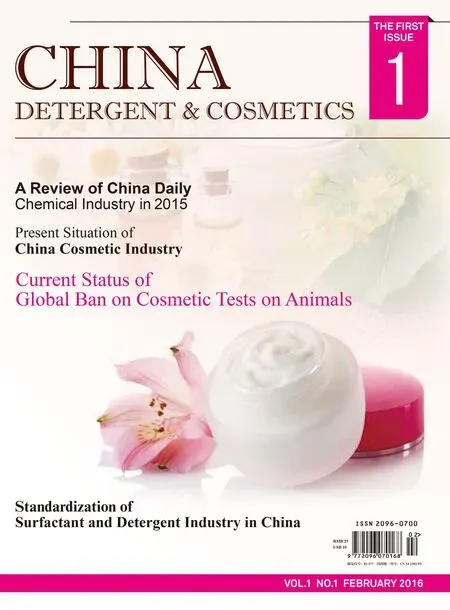Alibaba’s new partnership establishes China’s “first big data chemical products R&D lab”
E-commerce giant Alibaba has teamed up with personal care brand, Shanghai Jahwa to establish China’s first big data chemical products R&D lab to optimize and upgrade product supply chains.
As part of the deal, Alibaba will bring its expertise in retail, cloud computing, big data and finance to the table while new products of all sub-brands of Shanghai Jahwa will make their exclusive debut on the group’s platform,Tmall.com for two weeks.
It’s the latest move for the ambitious Chinese e-tail giant to conquer the online shopping after investing in a Singapore based center last September to cater to twothirds of its outbound investment to Southeast Asia.
2015 witnessed explosive growth in online shopping overseas, with new buyers accounting for 28 %, and with a preference for local specialties in other countries and regions.
With this in mind, Alibaba’s Singapore facility is its seventh globally and leverages on Alibaba’s $1 billion investment for cloud computing, enabling more businesses to benefit from secure and reliable cloudservices while riding on record foreign direct investment flows in Southeast Asia.
With direct connections to Aliyun’s data center network via Beijing, Hangzhou, Qingdao, Hong Kong,Shenzhen, and Silicon Valley; Chinese businesses will also be a key focus.
According to a report published by fellow Chinese e-tailer Taobao.com, online shoppers in China expanded their foothold to more than 100 countries and regions in 2015.
The most sought after products were reported to be cosmetics and skin care products, which have been bought by more than half of that 28% of buyers.
Previously, Chinese buyers were thought to prefer shopping websites in Hong Kong and Macao but now turned their attention to the likes of Japan and South Korea.
With 10% of China’s rural communities reportedly making a living selling products online, e-commerce retailers are making moves to invest in these merchants.
With little or no access to shopping malls, inhabitants of China’s rural villages have no choice but to buy online,particularly with cosmetic products.
According to Kline, record numbers of consumers taking to the Internet to make purchases has seen online beauty purchases spike by a record 200 % since 2006.
Although residents’ incomes tend to be lower in small towns and counties, for every 100 yuan spent online,57 yuan has been attributed to shoppers in small cities,greater than the national average of 39 yuan.
In fact, the rural market will be worth 460 billion yuan ($74 billion) in 2016. Both Taobao and Alibaba have caught on to this and are actively investing in growing these numbers.
 China Detergent & Cosmetics2016年1期
China Detergent & Cosmetics2016年1期
- China Detergent & Cosmetics的其它文章
- Application of Sensory Evaluation in the Concealer Product Research
- Formaldehyde Donor Preservatives in Cosmetics
- Investigation of Propoxylation and Ethoxylation of 2-Ethylhexanol in the Presence of an Alkaline and DMC Type Catalyst at Initial Stages of the Syntheses
- Analysis and Suggestions on Patent Application Status for Traditional Chinese Medicine Cosmetics
- Standardization of Surfactant and Detergent Industry in China
- Current Status of Global Ban on Cosmetic Tests on Animals
